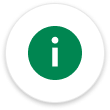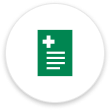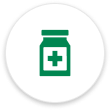Are you a GAIP member? Scroll down to see your enrollment information.
ISHIP enrollment
Benefits & coverage
Do I have to pay the provider on the same day of service?
Present your ID card to the provider at the time of service. In-network providers will submit a claim to LifeWise. In-network providers may ask for your out-of-pocket costs up front, or they may send you a bill after the claim processes. If you see an out-of-network provider, you may need to pay up front for the total cost of services and submit claims yourself using the Member Submitted Claim form.
How do I file a complaint or appeal a claim?
You may appeal any LifeWise decision you find unacceptable. And you may file an appeal related to a complaint that was not resolved to your satisfaction.
Here’s how:
Student Insurance Your Complaint and Appeal Rights
Member Appeal Form
I am an international student and I tried to cancel my student insurance but couldn’t - why not?
International students are required to enroll in the Student Health Insurance Plan. In certain circumstances, the International Students Services (ISS) office can waive this requirement.
Contact the ISS office
Room 459, Schmitz Hall
206-221-7857
https://iss.washington.edu
If International Students and Scholars Office find that your insurance policy is adequate, they will contact our office and ask that we cancel the current quarter’s UW insurance plan.
I need verification that I am enrolled in the student insurance plan. How do I do that?
Call customer service at 800-971-1491.
What are my pharmacy benefits at Rubenstein and other network pharmacies?
Refer to your benefit booklet for more information on pharmacy benefits.
Who are the network providers for this plan so I can get the highest percentage of coverage?
For medical benefits the network providers in our local area are:
- Campus clinics. Refer to ISHIP – LifeWise Assurance Company for more information.
- LifeWise provider network
For adult dental and adult vision benefits, there are no network requirements, and you may see any licensed provider. LifeWise contracts with many dentists and optometrists. If you visit one of these providers, you will not be balance billed for the charges in excess of the allowed amount.
What if I require medical care outside of the local area?
Your plan includes the LifeWise Assurance Company network of providers for Washington and Alaska. LifeWise contracts with MultiPlan/PHCS network for national coverage. When you visit a LifeWise Assurance Company or MultiPlan/PHCS provider you’ll simply present your ID card. Outside the U.S., you’ll have to pay medical expenses yourself and submit a claim form and documentation for reimbursement.
What do I need to know about prior authorization?
If you get a medical service that requires prior authorization without obtaining prior authorization, you may be liable for the entire cost of the service if it is not medically necessary.
View the Prior Authorization Services List for more information.
How am I protected from surprise costs?
When you see a doctor or other health care provider, you may owe certain out-of-pocket costs, such as a copayment, coinsurance, and/or a deductible. You may have other costs or have to pay the entire bill if you see a provider or visit a health care facility that isn’t in your health plan’s network.
“Out-of-network” describes providers and facilities that haven’t signed a contract with your health plan. Out-of-network providers may be permitted to bill you for the difference between what your plan agreed to pay, and the full amount charged for a service. This is called “balance billing.” This amount is likely more than in-network costs for the same service and might not count toward your annual out-of-pocket limit.
“Surprise billing” is an unexpected balance bill. This can happen when you can’t control who is involved in your care—like when you have an emergency or when you schedule a visit at an in-network facility but are unexpectedly treated by an out-of-network provider.
Insurers are required to tell you, via their websites or on request, which providers, hospitals and facilities are in their networks. Hospitals, surgical facilities, and providers must tell you which provider networks they participate in on their website or on request.
GAIP enrollment
Benefits & coverage
Do I have to pay the provider on the same day of service?
Present your ID card to the provider at the time of service. In-network providers will submit a claim to LifeWise. In-network providers may ask for your out-of-pocket costs up front, or they may send you a bill after the claim processes. If you see an out-of-network provider, you may need to pay up front for the total cost of services and submit claims yourself using the Member Submitted Claim form.
Who are the network providers for this plan so I can get the highest percentage of coverage?
For medical benefits the network providers in our local area are:
- Huskey Health Center on the Seattle campus
- LifeWise provider network
For adult dental and adult vision benefits there are no network requirements and you may see any licensed provider. LifeWise contracts with many dentist and optometrist and if you visit one of these providers you will not be balance billed for the charges in excess of the allowed amount.
What are my pharmacy benefits at Rubenstein and other network pharmacies?
Refer to your benefit booklet for more information on pharmacy benefits.
How do I file a complaint or appeal a claim?
You may appeal any LifeWise decision you find unacceptable. And you may file an appeal related to a complaint that was not resolved to your satisfaction.
Here’s how:
Student Insurance Your Complaint and Appeal Rights
Member Appeal Form
What if I require medical care outside of the local area?
Your plan includes the LifeWise Assurance Company network of providers for Washington and Alaska. LifeWise contracts with MultiPlan/PHCS network for national coverage. When you visit a LifeWise Assurance Company or MultiPlan/PHCS provider you’ll simply present your ID card. Outside the U.S., you’ll have to pay medical expenses yourself and submit a claim form and documentation for reimbursement.
What do I need to know about Prior Authorization?
If you get a medical service that requires prior authorization without obtaining prior authorization, you may be liable for the entire cost of the service if it is not medically necessary.
View the Prior Authorization Services List for more information.
How am I protected from surprise costs?
When you see a doctor or other health care provider, you may owe certain out-of-pocket costs, such as a copayment, coinsurance, and/or a deductible. You may have other costs or have to pay the entire bill if you see a provider or visit a health care facility that isn’t in your health plan’s network.
“Out-of-network” describes providers and facilities that haven’t signed a contract with your health plan. Out-of-network providers may be permitted to bill you for the difference between what your plan agreed to pay, and the full amount charged for a service. This is called “balance billing.” This amount is likely more than in-network costs for the same service and might not count toward your annual out-of-pocket limit.
“Surprise billing” is an unexpected balance bill. This can happen when you can’t control who is involved in your care—like when you have an emergency or when you schedule a visit at an in-network facility but are unexpectedly treated by an out-of-network provider.
Insurers are required to tell you, via their websites or on request, which providers, hospitals and facilities are in their networks. Hospitals, surgical facilities, and providers must tell you which provider networks they participate in on their website or on request.




